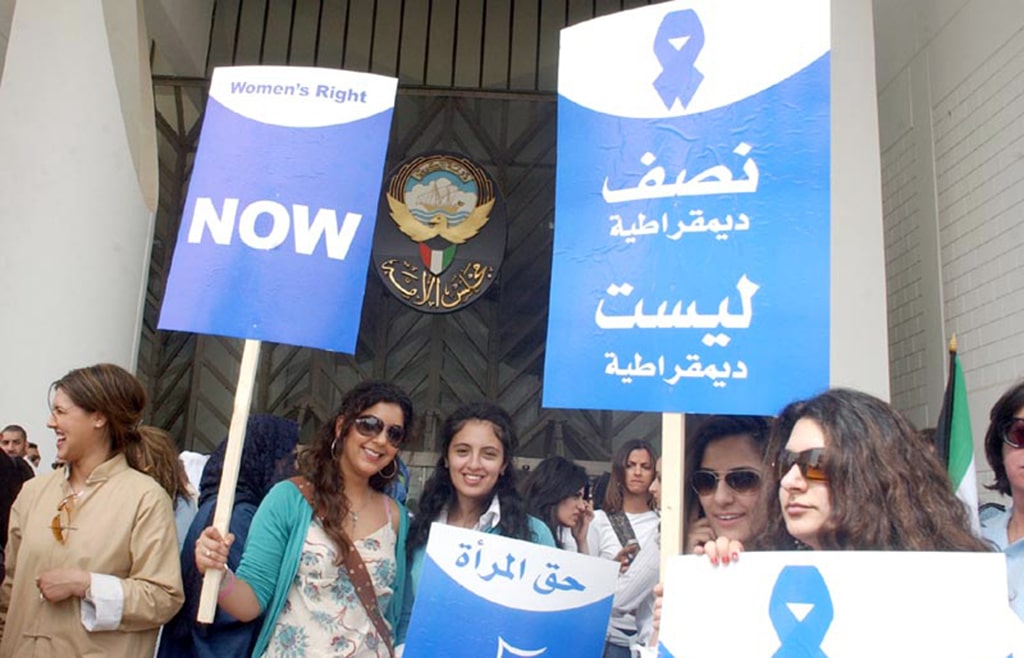By Faten Omar
KUWAIT: In a list of least Arab women’s participation in political work issued recently by V-Dem Institute, Kuwait was ranked second among Arab countries, after Yemen. According to a report by the Arabian Gulf Center for Studies and Research (CSRGULF) – the first think tank in Kuwait – the index is about Arab women practicing politics and assuming leadership positions. The study shows although women represent the largest percentage of the total number of Arab voters, their representation in legislative councils remains weak and uneven.
The report noted that Yemeni women were the least fortunate in politics, followed by Kuwaiti women and Sudanese women. On the other hand, Emirati women topped most Arab women practicing political work because of the encouragement, training and empowerment programs supported by their country. Moroccan, Iraqi and Mauritanian women followed Emirati women on the list. This reflects the remarkable presence of women in these countries in political work, especially in the legislative and governmental fields.
The report said some countries have succeeded in overcoming obstacles to support women’s practice of politics and succeeded in empowering them through quotas in government or legislative councils, or by promoting a culture of political action among women and granting them confidence in assuming leadership positions. However, while women in these countries are fortunate, women in other countries have not had the same luck, such as women in Sudan, Syria and Oman, who followed Kuwait on the list.
In Arab countries, there is a large disparity between the sexes in this field, based on data on democracy and human rights in the Arab world, in addition to studying estimated variables of the percentage of Arab women’s representation in legislative councils and the extent to which they obtained an equal share with men in political power during the last 10 years, which led to a conclusion on the order of assessment of the extent to which women exercised political work.











